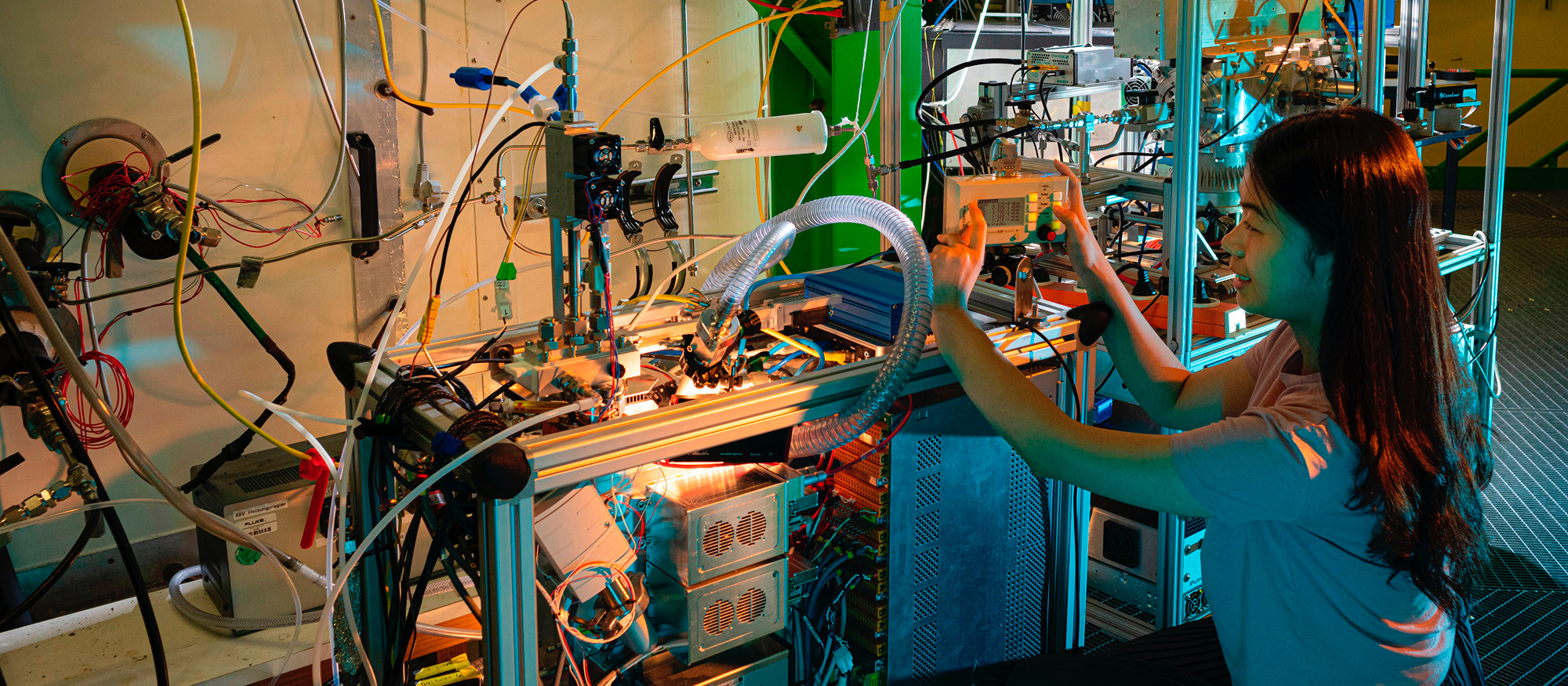Current RIRO-courses
Course |
Cycle |
Ilias-course |
| Modern Methods of spectroscopy | every semester | M-PHYS-106047 |
| Smart Energy System Lab | every semester | 2400170 |
| Atmospheric Remote Sensing Infrastructures | summersemester | 6020247, 4052201 |
| Experimental Design and Analysis: Transport Processes in Rivers | summersemester | 6222807 |
| Accelerators, synchrotron radiation | every semester | T-PHYS-104559 |
| Internship autonomous driving | every semester | T-MACH-113713 |
| Observatory Course | every semester | M-PHYS-105662 |
| Computational Fluid Dynamics and Simulation Lab | every semester | 0161700 |
| Boosting the Modern Energy Landscape via Turbo Machines & Machine Learning | wintersemester | 2169558 |
| The Weather Prediction Chain | starts summersemester 2026 | |
| Computational Fluid Dynamics and Simulation Lab, Modelling, Algorithms, Simulation | starts wintersemester 2025/26 | |
| AI-based chemical biology | starts wintersemester 2025/26 | |
| Advanced DeepLearning in Environmental Sciences |
RIRO GRANTS
As a University of Excellence project, 16 competitively selected courses were financially supported in their implementation - our RIRO Grants. Based on the guiding principle of research-oriented teaching, the majority of them follow the concept of research-based learning. This is aimed at ensuring that the responsibility and activities of a teaching-learning setting are primarily in the hands of the students compared to a traditional lecture. Based on the essential phases of a research process, students are actively involved and help to shape the implementation independently (Huber, 2009).
Depending on the design, both the intensity of supervision and the degree of autonomy in developing a research question can vary greatly. For some RIRO grants, it was the students' responsibility both to identify a question for their research project and to implement it. Other RIRO grants specified the research question to be addressed and/or offered students closer support. However, all RIRO grants are united by the idea of making it possible to experience research at research infrastructures so that teaching becomes an impressive experience.
- Direct access to large-scale top-level research facilities: Students work at internationally renowned KIT research infrastructures.
- Excellent supervision: Highly recognized KIT professors are closely involved in the courses and are therefore in direct contact with the students.
- Learning through experience: Students are given the opportunity to carry out their own research projects in small groups and under close supervision at state-of-the-art research infrastructures and to apply theoretical knowledge in practical projects.
- Self-efficacy through personal responsibility: students take the lead and bear significant responsibility for the design and implementation of their research experiments.
- Sparking enthusiasm for science: carrying out their own work on excellent research infrastructures together with passionate researchers awakens students' enthusiasm for a career in science.
- Promoting key skills: Skills such as project management, teamwork, creativity and communication skills are strongly encouraged in addition to subject-specific knowledge.
- Progress through individual feedback and reflection: working in small groups enables lecturers to respond to and support each individual student. Reflecting on the work in the group also contributes to this.

